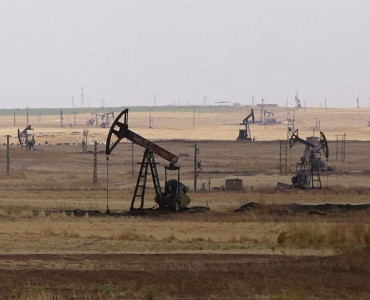At the Paris climate change conference, 195 countries have reached an unprecedented accord to commit nearly all states to lowering greenhouse emissions aiming at decreasing dangerous climate change effects, Bloomberg reported.
The Paris pact calls for a regular review of countries’ pledges every five years, with an aim to limit the global average temperature rise to 1.5°C above pre-industrial levels, The Washington Post wrote.
The New York Times reported that the deal had triggered a fundamental shift toward zero-carbon energy production shunning away investments in coal, oil and gas as primary energy sources.
According to Bloomberg, global governments and businesses are counting the costs and benefits of the concluded agreement, while fossil-fuel producers and countries dependent on fossils are awaiting a massive costly disruption. Nevertheless, recent analyses published by the International Energy Agency suggest that fossil fuels will still account for about 75% of energy demand in 2030, with coal hitting a plateau, and natural gas surging. However, the Carbon Tracker Initiative‘s October analysis emphasized that these scenarios had not reflected the huge potential for reducing fossil fuel demand in accordance with de-carbonization pathways.
The UN estimates that $1t in spending is required to de-carbonize the global economy, and prevent temperature rises that are threatening to flood coastal areas, and destroy ecosystems.
At the summit, developed countries pledged to give $100b a year of clean energy funding to the developing world by 2020, a major commitment that would likely stay short of the estimated global requirements, according to a report by Reuters.
In addition, multinational companies sought to push through a global scheme for CO2 emissions trading scheme as an incentive package to boost construction of cleaner power plants and encourage green energy production, wrote Reuters. Saudi Arabia, Bolivia and other big oil exporting countries were reported as having objected to such a market-based solution. However, French President, Francois Hollande said he would seek to build a coalition of countries to pursue a CO2 emissions pricing scheme.












